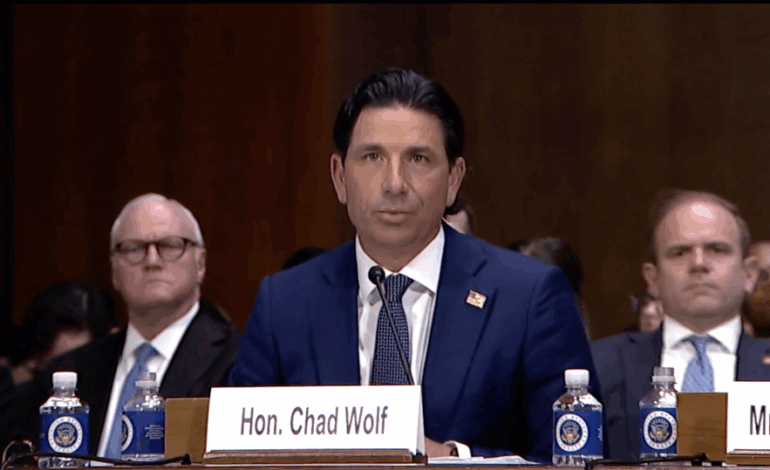Chad Wolf’s Testimony Sparks Debate on Political Violence

Former acting Homeland Security Secretary Chad Wolf faced scrutiny during a Senate hearing on political violence, as his testimony contradicted earlier assessments regarding the nature of such violence in the United States. On October 3, 2023, Wolf testified before the Senate Subcommittee on the Constitution, where he claimed that recent increases in politically motivated violence are primarily linked to radical left-wing groups. This statement diverges sharply from his comments made five years earlier, when he identified white supremacist extremists as the most significant threat to public safety.
During the hearing, Senator Richard Durbin (D-IL) referenced Wolf’s prior testimony from September 2020, in which he stated, “White supremacist extremists… are certainly the most persistent and lethal threat” regarding domestic violent extremism. This earlier assessment came in the wake of several high-profile attacks, including the mass shootings in El Paso, Texas, and Pittsburgh, Pennsylvania, both carried out by individuals motivated by white supremacist ideologies.
In his recent testimony, Wolf presented a different viewpoint, declaring that “the increase in politically motivated violence over the last several years has been driven largely by radical, left-wing extremist groups.” He asserted that this shift in violence has intensified since Donald Trump‘s second election victory, aligning with a narrative promoted by the America First Policy Institute, where Wolf now serves as executive vice president.
Wolf did not renounce his past statements regarding white supremacist violence but emphasized a perceived rise in left-wing violence. He cited several incidents, including the assassination attempts on conservative figures and attacks on crisis pregnancy centers, to support his argument. Notably, he refrained from mentioning instances of violence against Democratic officials or protests against political violence, including the attack on Paul Pelosi, husband of former House Speaker Nancy Pelosi.
Testifying alongside Wolf, William Braniff, a former director of the Department of Homeland Security’s Center for Prevention Programs, acknowledged the increase in violent incidents but indicated that these events do not conform neatly to a singular ideological narrative. He referenced data showing a significant rise in terrorism-related events, noting a 67 percent increase in incidents compared to the previous year and a near 150 percent increase in fatalities.
Braniff’s testimony highlighted the complexities surrounding political violence in the U.S. He pointed out that violence has stemmed from various ideological groups, including white supremacists, anti-government factions, and radical left-wing entities. This multifaceted nature of violence challenges the notion that any one group is solely responsible for rising political tensions.
The hearing also revisited the events surrounding the protests that erupted after the police killing of George Floyd in Minneapolis. Senators Eric Schmitt (R-MO) and Ted Cruz (R-TX) cited these protests as evidence of left-wing violence, with Cruz asserting that “the politically motivated violence in this country is overwhelmingly emanating from the left.”
Despite these claims, analyses of the data suggest a more complicated picture. According to information from the Armed Conflict Location & Event Data Project (ACLED), only a small fraction of deaths during the 2020 racial justice protests can be linked directly to individuals associated with movements like Black Lives Matter or antifa. A comprehensive review indicated that out of approximately 34 deaths plausibly connected to the unrest, only three involved perpetrators directly associated with these movements.
As political discourse continues to polarize, the testimony from Wolf and Braniff underscores the ongoing debate regarding the sources and responsibilities of political violence in the United States. The conversation reflects broader societal tensions and the challenges of addressing the complexities of domestic extremism in a politically charged environment.
The issue of political violence remains a critical concern for lawmakers and citizens alike, necessitating a nuanced understanding of the various factors contributing to this troubling trend.






